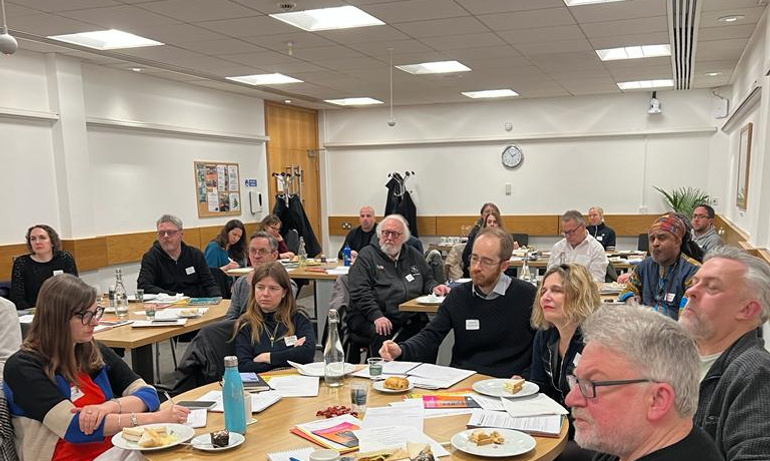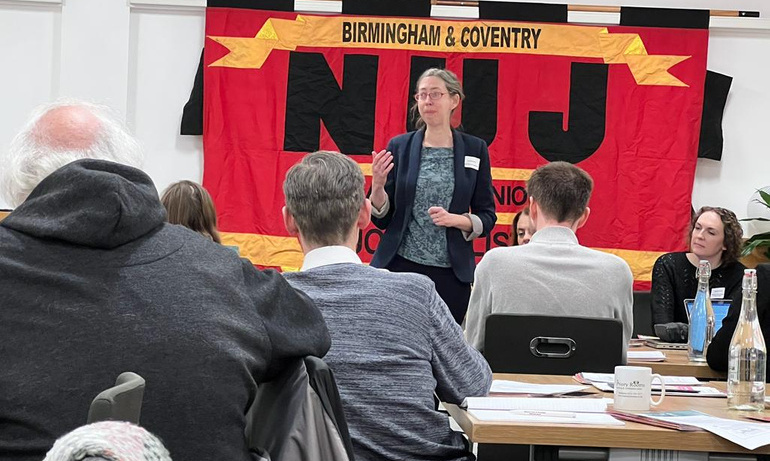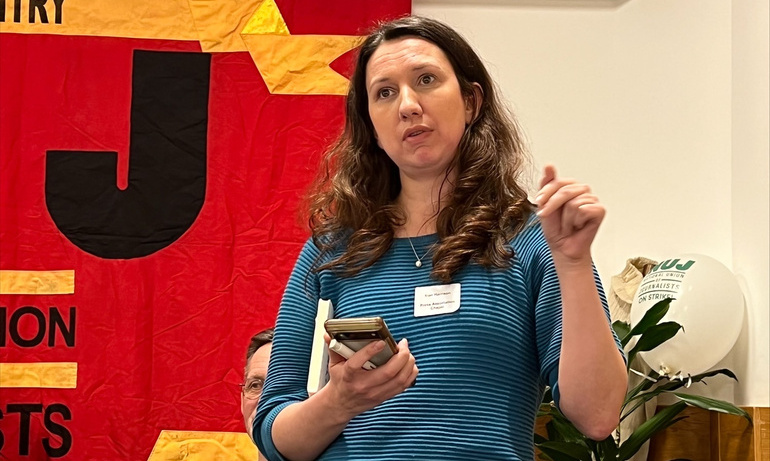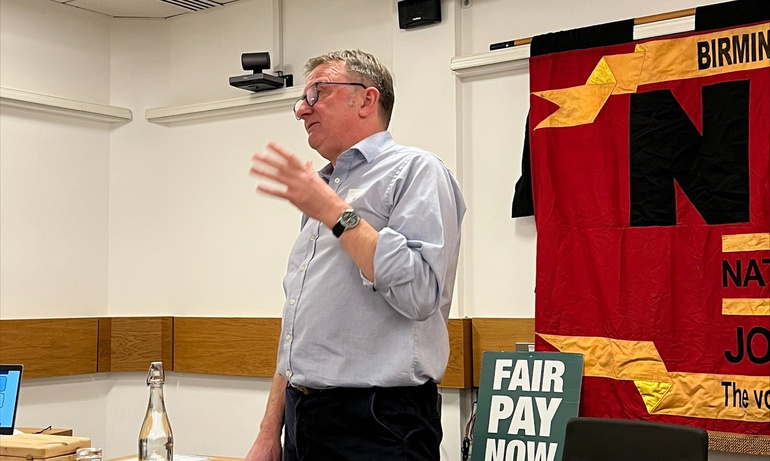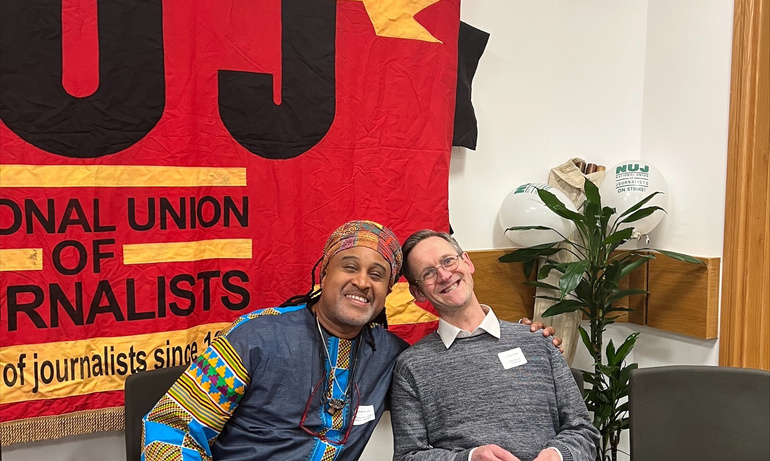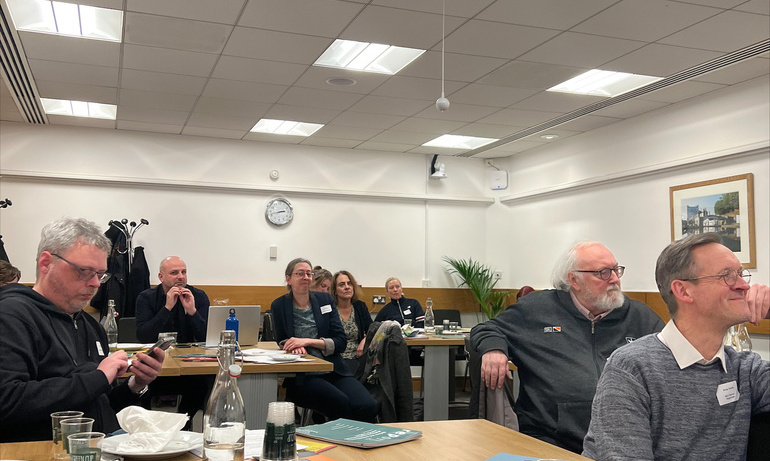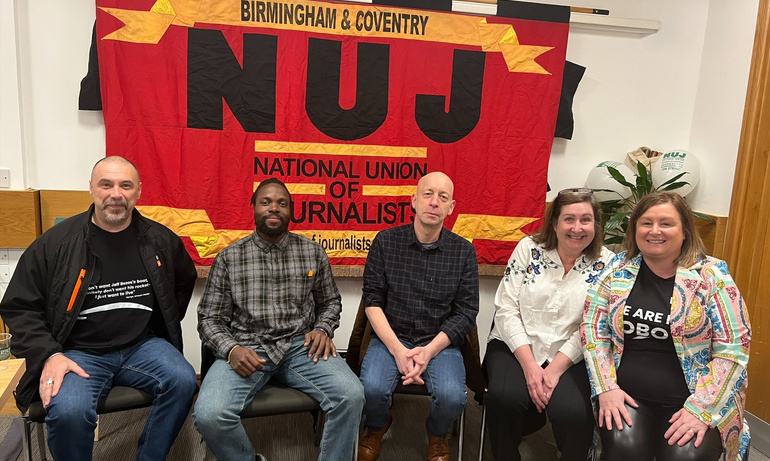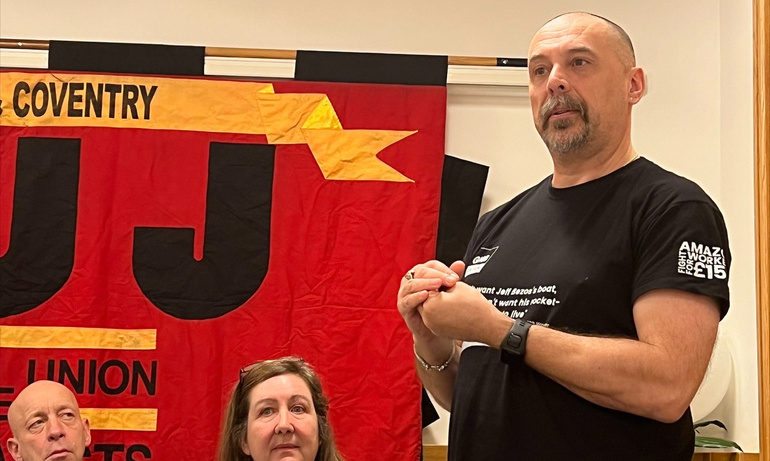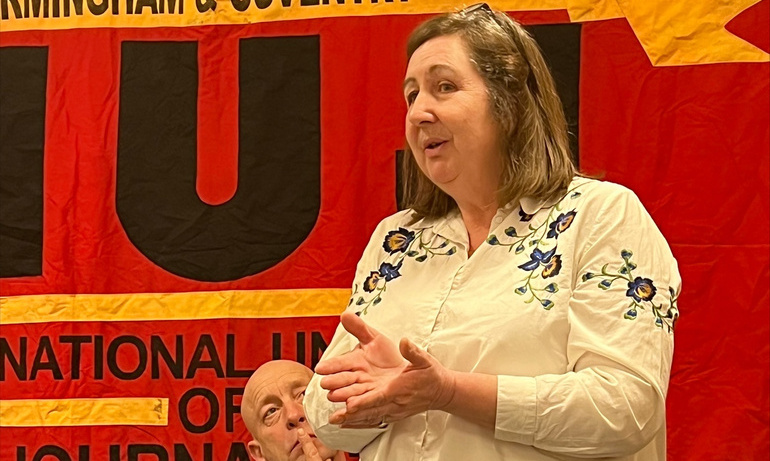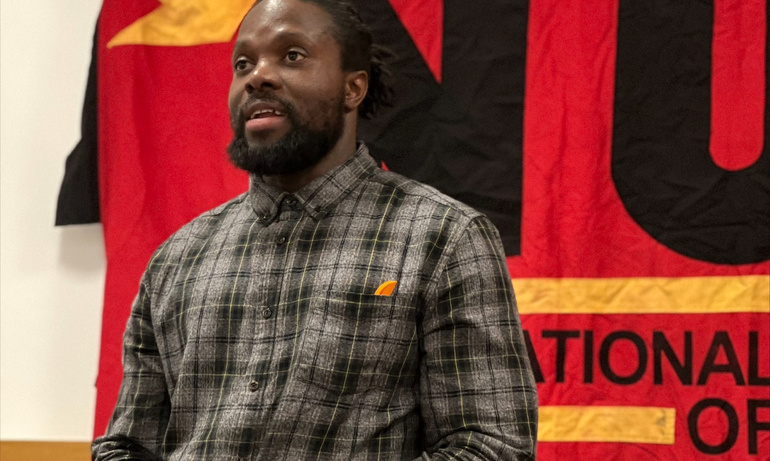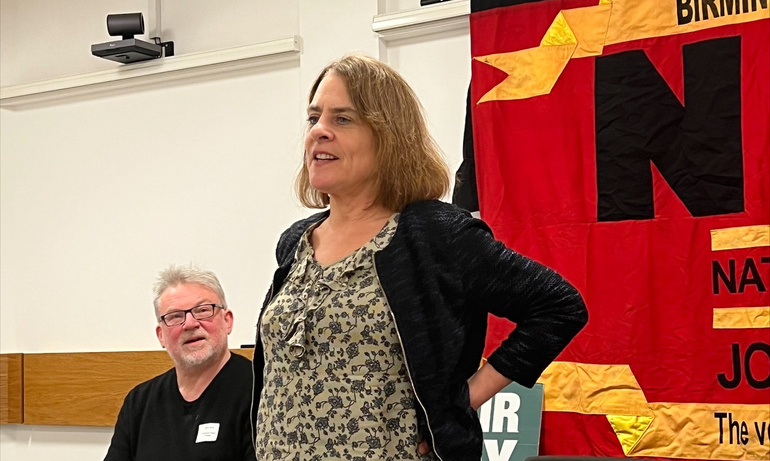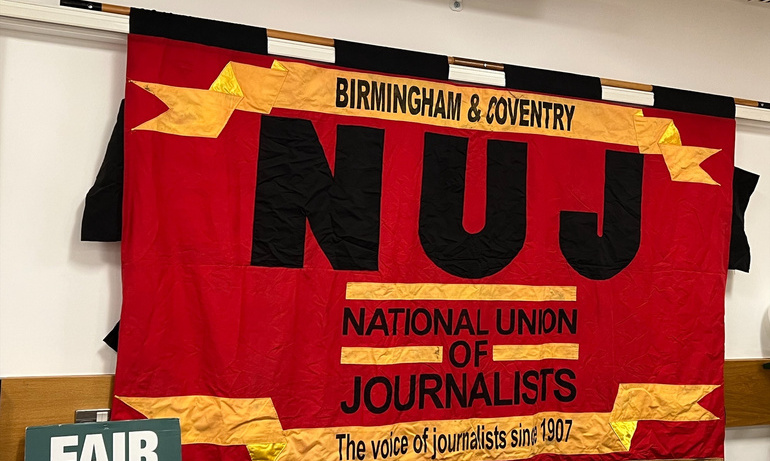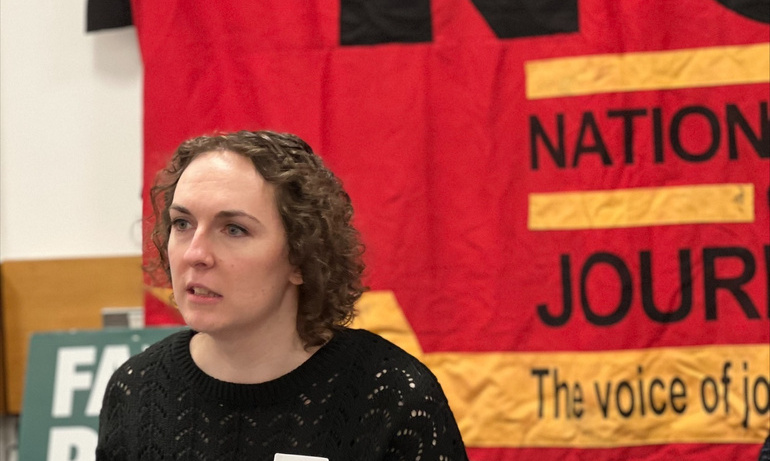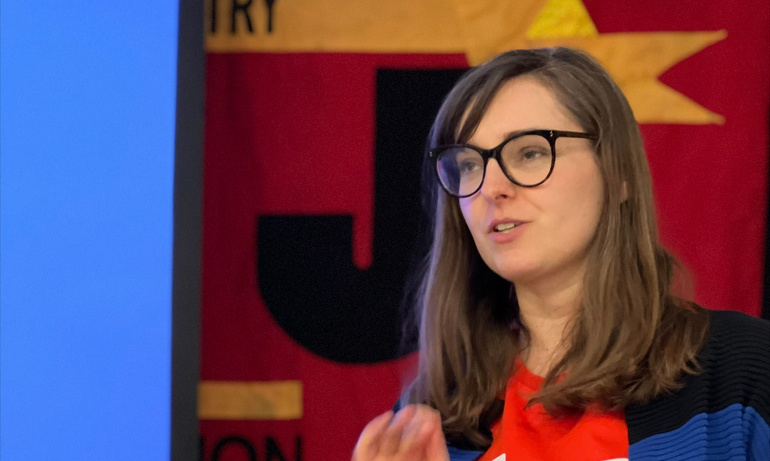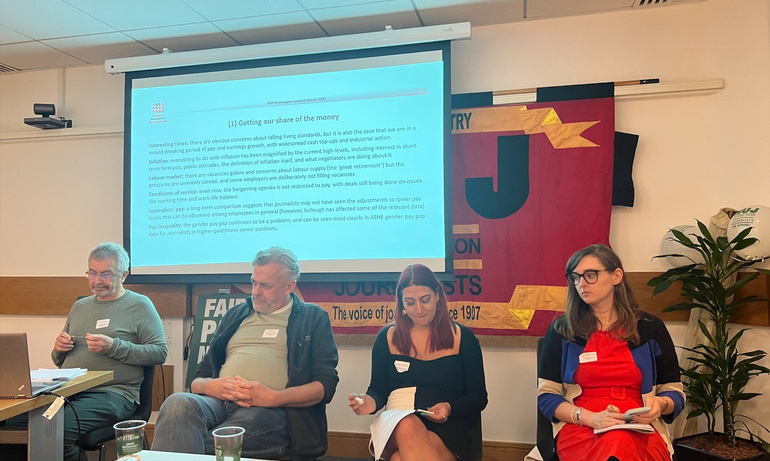NUJ reps mobilise on pay at 2023 NAIC summit
Newspapers and Agencies Industrial Council sector reps met to share experiences and build strategies at the summit in Birmingham on 4 March.
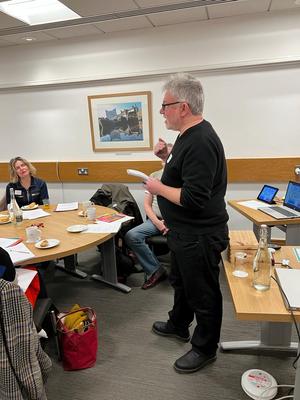
Steve Bird
Steve Bird, NAIC co-chair, welcomed reps warmly, reminding attendees that the “NUJ when it works at its best is member-led”. Bird recognised the impact of political and economic change on the sector, and the need to discuss pay, data, trends, and organising members - all items on the day’s agenda. He urged reps to share experiences and feel encouraged in the unity on achieving pay awards.
Chris Morley, NUJ senior organiser, reflected on factors affecting the industry including the credit crunch, inflation, pandemic and Russia’s invasion of Ukraine to name a few. He considered the revenue of businesses over decades and their failure to increase pay rates, with companies falling far behind inflation despite skyrocketing profits. Morley emphasised that members’ engagement and decision to take industrial action had proved effective in achieving results for NUJ members.
Abbie Wightwick, seconded to work on publisher Reach’s career progression development framework, spoke of its importance as current structures failed to adequately support diversity, women journalists and those from minority backgrounds.
She reflected views shared by members, that Reach’s drive for digital is having an impact on quality journalism as pressure mounts to chase online hits.
On recent strike action, she said:
“Last year’s industrial action built momentum as chapels met and started taking steps towards a ballot. People who hadn’t been in the union started joining too.”
Georgina Morris, a rep at National World, emphasised the strength in working together but noted challenges over years of losing experienced reps in rounds of redundancy. Morris told delegates of the stagnation of rates accompanied by increased responsibilities, without pay increases to reflect this. She praised success by Reach reps however, and its ripple effect on boosting the confidence of chapels working towards recognition.
Laura Davison, NUJ senior organiser, told delegates there had been an increase in interest from chapels keen to explore how best to get organised. “Peer to peer discussion and support makes the difference” she said, reminding reps too, of the power of experience and knowledge garnered. She urged individuals to continue campaigning, as successes made for great examples to put forward to employers, helping drive up pay rates across the industry.
Davison also cited culture change and hybrid working presented as driving forces for achieving recognition.
Lewis Emery from the Labour Research Development, highlighted there are over 1 million vacancies according to the latest ONS data, and there is deliberate action by some employers to avoid filling gaps. He said the median trend on pay demonstrates an upward trajectory on increased pay awards.
Emery also considered extra conditions including working time and family friendly changes put forward by employers.
Extensive data is now available at employer level on the gender pay gap, and information can be accessed online as part of mandatory reporting requirements. NUJ reps can access an LRD database of company pay agreements to help with pay campaigns. Contact [email protected] for login details.
Keith Fray, from the Financial Times shared his experiences on the negotiating team that achieved the recent pay award at the FT. Fray and colleagues considered the company’s finances in recent years, using data provided by the organisation to model the bargaining unit and salaries, and inform the approach adopted by the chapel.
Natasha Wynarczyk, Reach equality rep, said the company have committed to have 30 per cent of women on the senior management board by 2023. The publisher of titles including the Daily Mirror and Express has no focus group with the union however, to consider the gender pay gap.
In addition, insufficient tools and structures mean women can easily fall behind on achieving fair rates at the organisation. Wynarczyk stated creating transparency around wages and bands by advertising salaries is a much-needed step. “The gender pay gap is endemic in the media industry.” she said.
Kimberley Long, from the FT Specialist chapel focused delegates’ minds by honing in on data. The US gender pay gap widened by 2.4 percentage points, and the UK ethnicity gap did so too, worsening by 4.6 percentage points. Long shared valuable information, highlighting the disproportionate number of women earning £30,000 in comparison to men at FT Specialist.
Sian Harrison, from PA media, provided context on pay discrepancies within her employer. A 10 per cent pay cut was implemented at the outset of the pandemic with little thought given to the impact on colleagues on lower pay grades.
Amazon employees join summit
Morley extended a message of solidarity to Amazon employees involved in a dispute with the company, who had recently taken part in strike action. Reps welcomed comrades with applause as they uncovered the company had a turnover of £24bn in the UK.
Amanda Gearing, GMB senior organiser, shared detail on the poor conditions at fulfilment centres at Amazon, heightened during the pandemic when staff were unable to social distance, leaving many in fear of the impacts on their health.
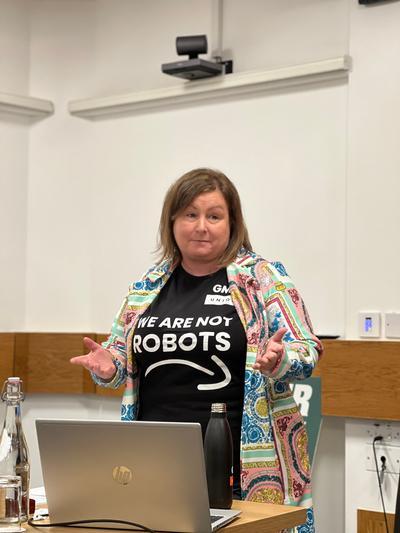
She said:
“We have workers that need jobs, but we want them to have decent terms and conditions.”
Gearing also sent a message of solidarity to NUJ BBC Local members ahead of upcoming strike action on 15 March, coinciding with action by Amazon workers.
The GMB achieved a mandate for strike action at Amazon on the second formal ballot held, following difficulty achieving required turnout on the first attempt. Gearing shared approaches used including door knocking and phone backing to mobilise and organise.
“Here we were looking down the barrel at the first industrial action taken at an Amazon fulfilment centre in this country.” She said.
Darren, an Amazon employee, elaborated on the midnight walk-out of members taking part in action and how this had led to some changes being implemented, although there was still a long way to go. Mikey thanked NUJ reps for the opportunity to share his experience. He had joined the picket line for the first time, encouraging others by informing them of their legal right to strike.
He said:
“We are fighting for our rights, if we don’t stand up for ourselves, Amazon won’t stand up for us. It’s not a violent movement, it’s a legal movement”
Another Amazon employee, Marie, spoke of staff taking out loans and pawning goods in order to afford living costs. “It should not be a necessity to work 60 hours just to pay your bills.” she said.
Stuart, the final Amazon employee to address reps, shared that action will continue to put pressure on the company to obtain change for workers. We are creating “a mission of change” he said, on the steps being taken.
Bea Adi, NUJ senior campaigns and communications officer, shared the work of the NUJ campaigns team and the support on offer to reps as they sought creative ways to engage with members on a range of issues. She reflected on approaches used in the Reach ballot last year, and urged reps to consider capturing the public’s attention and support, encouraging members in activism. Adi discussed the value of up-to-date contact details in improving engagement, and reminded delegates of resources and support available from the campaigns team.
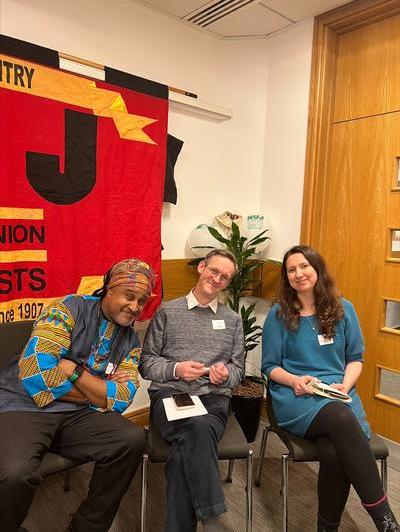
Roger McKenzie, Andy Smith, Sian Harrison
Roger McKenzie, NAIC member, shared his use of a three-strand strategy when organising members, focused on anger, action and hope. He explored how members could be mobilised by boosting confidence and their ability to seek improvements, each time they engaged with reps and officials. Recognising similarities of aims across the trade union movement, reps attending agreed there was solidarity we could offer each other.
Andy Smith, NUJ senior organiser, considered how chapels can support freelances in their workplaces and stressed the importance of allyship and working together to improve freelance rates. He shared previous NUJ action informing freelance members of industrial action by colleagues, and how their support declining work on these dates held power.
“We support people to speak for themselves” Smith said, urging chapels to take action on freelance pay.
Reps from across the sector including AFP, Newsquest, Reach, Financial Times and The Guardian were all represented on the day.

Pay campaign
The NUJ's pay campaign calls for fair pay across journalism, providing practical support to chapels in their engagement with employers.
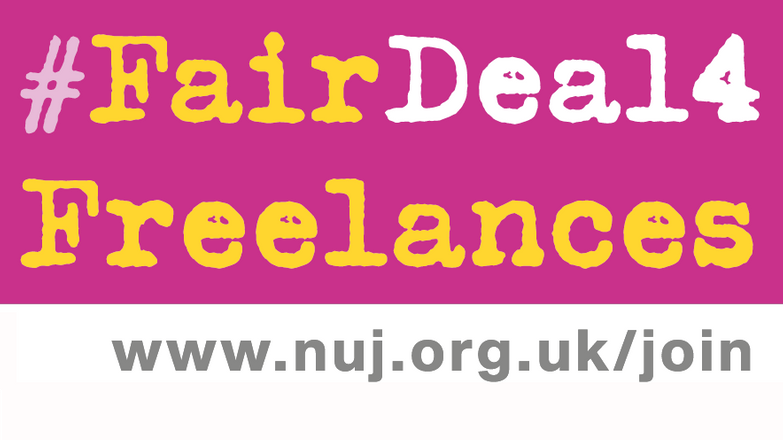
Fair Deal for Freelances
The NUJ's major campaign to fight for a better deal for freelances.

